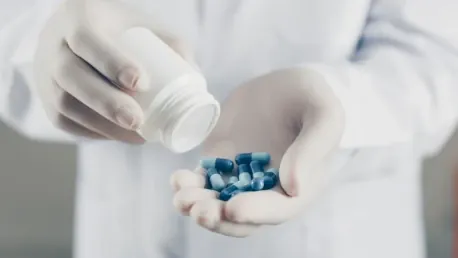PCI Pharma Services, a global Contract Development and Manufacturing Organization (CDMO), has set a precedent by becoming the first to complete the International Coalition of Medicines Regulatory Authorities (ICMRA) inspection at its Bedford, New Hampshire campus. This milestone was achieved under the newly introduced Collaborative Hybrid Inspection Pilot (CHIP) program, designed to streamline the regulatory approval process for facilities that manufacture regulated therapies. Unlike traditional phased inspections, CHIP enables multiple regulatory agencies from various countries to conduct a collaborative and simultaneous inspection. This innovative approach aims to significantly reduce the time required for regulatory approvals by adopting a unified inspection model. For the recent inspection at PCI, two agencies participated directly, with one present onsite and the other virtually, while five additional regulatory bodies observed virtually.
Transformative Infrastructure Investments
Tom McGrath, Vice President of global quality for manufacturing and development at PCI, emphasized that this comprehensive, collaborative process accelerates the speed at which CDMOs or sponsoring pharmaceutical companies can proceed with manufacturing, packaging, and ultimately commercializing therapies. In support of this expedited process, PCI recently invested over $100 million in infrastructure enhancements at its Bedford site. The facility now boasts specialized capabilities in sterile fill-finish and lyophilization, which are processes frequently used in the production of injectable and biologic therapies. This significant investment underscores PCI’s evolution into a multi-product, multi-capability campus servicing leading pharmaceutical companies across the entire drug product lifecycle—from development to commercialization. The enhancements not only broaden PCI’s service offerings but also improve its capacity to meet stringent regulatory requirements efficiently.
Accelerated Regulatory Pathways
Salim Haffar, CEO of PCI, emphasized that the communal nature of the CHIP program significantly benefits the pharmaceutical industry by speeding up regulatory approvals across various global agencies. This streamlined process accelerates the production and commercialization of sterile drug products, helping pharmaceutical companies and, more importantly, the patients who depend on these therapies. The CHIP program’s synchronized inspection and approval process addresses one of the industry’s major challenges: delays due to different regulatory requirements and procedures. This unified approach enhances operational efficiencies, reduces time-to-market, and ensures that essential therapies reach patients quicker without sacrificing safety or compliance.
In essence, the CHIP program represents a transformative advancement for the pharmaceutical sector, offering a faster, more efficient path to regulatory approval and commercial production. PCI Pharma Services’ successful navigation of this new inspection process demonstrates its commitment to expediting the delivery of vital therapies worldwide. As more companies and regulatory bodies adopt this collaborative inspection method, the industry could see a significant reduction in the time and resources required to bring new therapies to market, greatly improving patient outcomes on a global level.









